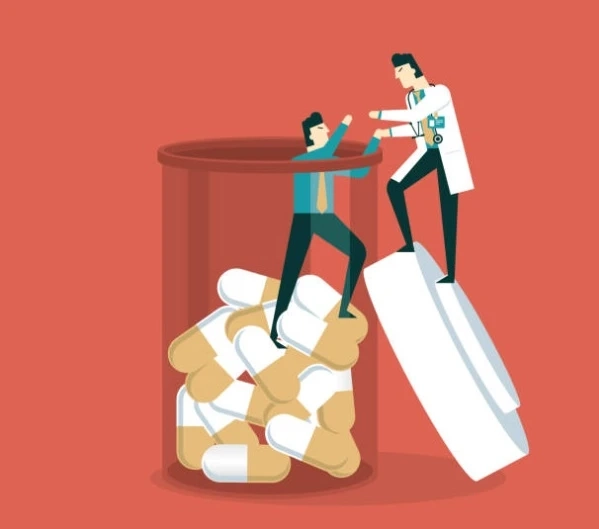Dealing with opiate addiction is a tough journey, but it can lead to a healthier, drug-free life. This guide aims to provide a comprehensive look at how to tackle opiate addiction treatment effectively. With the right support and strategies, overcoming this challenge is possible. Here, we'll explore various aspects of treatment to help individuals and their loved ones understand the path to recovery.
Understanding Opiate Addiction
Opiate addiction is a serious condition that affects both the mind and body, making it hard for someone to stop using these drugs without help. It's crucial to approach treatment with a clear plan and support. Opiates can quickly lead to addiction due to their powerful effect on the brain's reward system. Over time, the body becomes dependent on these substances to feel normal, creating a cycle that's hard to break.
Primary Steps in Opiate Addiction Treatment
Following are some major steps to follow in opiate addiction treatment:
Medical Detox
The first step in treatment often involves medical detox, a process where the body safely removes opiates under medical supervision. It can help manage withdrawal symptoms, which can be severe.
Therapy and Counseling
Talking therapies play a huge role in treatment. They help individuals understand the root causes of their addiction, develop coping strategies, and rebuild their lives without drugs. Types of therapy might include individual counseling, group therapy, or family therapy.
Medication-Assisted Treatment (MAT)
MAT combines medications with counseling and behavioral therapies. Medications like methadone, buprenorphine, and naltrexone can help reduce cravings and withdrawal symptoms, making it easier to stay on the path to recovery.
Support Groups
Joining a support group can provide a sense of community and mutual support. Groups like Narcotics Anonymous offer a space to share experiences and challenges, fostering a sense of belonging and understanding.
Overcoming Challenges
Recovery from opiate addiction is a long-term process with ups and downs. Staying motivated, even during tough times, is fundamental. Setting small, achievable goals can help maintain focus and motivation. Relapse is a common part of the recovery journey; rather than seeing it as a failure, it should be viewed as a step in the learning process. Identifying triggers and learning from experiences can strengthen future efforts to stay drug-free.
Maintaining Recovery
Adopting a healthy lifestyle supports recovery. It includes eating well, doing regular exercise, and finding hobbies or activities that bring joy and fulfillment. Continued participation in therapy sessions or support groups can provide ongoing encouragement and accountability, helping to sustain recovery over the long term.
Conclusion
Opiate addiction treatment is a versatile process that requires dedication, support, and patience. By understanding the various components of treatment and preparing for the challenges ahead, individuals can navigate the path to recovery more effectively. Overcoming opiate addiction is no small journey, but with the right approach and resources, a drug-free life is within reach. Remember, the road to recovery might be long and straining, but the destination—a healthier, happier life—is worth every step.



